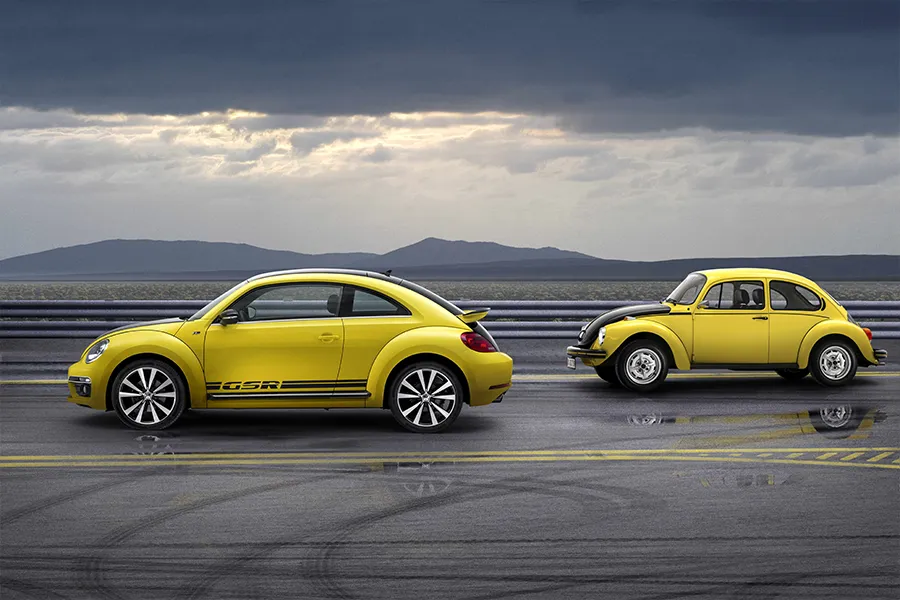
History of the Volkswagen Beetle
The Volkswagen Beetle, often affectionately known as the “Bug” or “Bugatti,” is a true automotive icon that has left an indelible mark on popular culture. Its distinctive design, reliable engineering, and endearing charm have made it one of the most recognizable and beloved cars in history. Let’s delve into the fascinating history of this legendary automobile.
The origins of the Volkswagen Beetle can be traced back to the 1930s in Germany when Ferdinand Porsche, the renowned automotive engineer, was commissioned by Adolf Hitler to create a “people’s car” that would be affordable and accessible to the masses. This vision led to the development of the “KdF-Wagen,” which later became the Volkswagen Beetle we know today.
In 1938, the first Beetle rolled off the production line, but its full potential was delayed due to the outbreak of World War II. During the war, the factory was repurposed for military production, and the Beetle was utilized for various purposes, including as a staff car and even as a makeshift ambulance.
However, it was after the war that the Beetle truly took flight. As Germany sought to rebuild its economy, the Volkswagen factory in Wolfsburg was handed over to the British military. They recognized the Beetle’s potential and began producing it for civilian use. The simplicity of its design, air-cooled engine, and remarkable durability made it an ideal choice for the post-war era.
The Beetle’s popularity spread rapidly, both in Europe and overseas. Its distinctive rounded shape, affectionately likened to a “bug” or “beetle,” captured the imagination of drivers around the world. With its rear-mounted engine, compact size, and remarkable fuel efficiency, the Beetle was perfectly suited for navigating narrow streets and congested cityscapes.
In the 1950s and 1960s, the Beetle became a cultural phenomenon. It became an icon of counterculture and the symbol of a carefree and adventurous lifestyle. The Beetle’s affordability and reliability made it a popular choice for young drivers, and it played a significant role in shaping the cultural landscape of the time.
Over the years, the Beetle underwent several modifications and improvements to keep up with changing demands and safety regulations. It evolved from its original split rear-window design to a larger one-piece window and received enhancements such as a more powerful engine, upgraded suspension, and additional safety features.
In the late 1960s, the Beetle found its way into popular culture through movies, music, and art. It became synonymous with the hippie movement and was embraced as a symbol of peace, love, and individuality. Its appearance in films like “The Love Bug” solidified its status as a pop culture icon, and it remains deeply ingrained in the collective memory.
As the automotive industry advanced, the Beetle faced challenges from more modern and practical vehicles. In the late 1970s, Volkswagen introduced the Golf (Rabbit in the United States), a front-wheel-drive hatchback that appealed to a new generation of drivers. The Golf gradually replaced the Beetle as Volkswagen’s flagship model, and production of the Beetle in Germany came to an end in 1978.
However, the Beetle’s story didn’t end there. In 1998, Volkswagen reintroduced the Beetle with a modernized design that paid homage to its predecessor. The “New Beetle” featured rounded contours and nostalgic styling cues, capturing the spirit of the original while incorporating modern technology and amenities. The New Beetle proved to be a hit, appealing to both loyal fans and a new generation of drivers.
In 2011, Volkswagen unveiled the latest iteration of the Beetle, known simply as the Beetle or Beetle Coupe. This version embraced a more sleek and sporty design, catering to a broader audience. With improved performance, advanced features, and a range of customization options, the Beetle continued to captivate drivers with its timeless appeal.
Sadly, in 2019, Volkswagen announced that production of the Beetle would cease, marking the end of an era for this iconic car. However, its legacy lives on. The Volkswagen Beetle will forever be remembered as a symbol of innovation, resilience, and the joy of driving. Its unique design and cultural significance ensure that it will always hold a special place in the annals of automotive history.